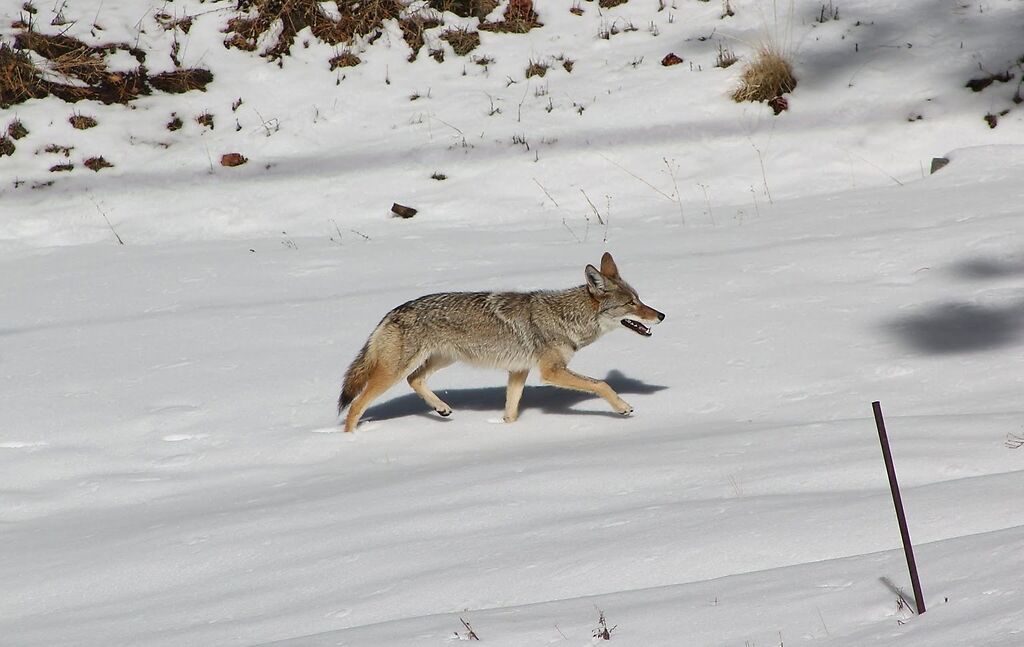Safeguarding Your Livestock From Coyotes

Coyotes are excellent predators, and sheep, lambs, and calves, in addition to other livestock, can often find themselves prey for a group of hungry coyotes. There are numerous things you can attempt to do if coyotes have become a problem for you.
Improve Your Existing Fencing
The first thing to do is to improve your fencing. If coyotes can easily get over your fences, then there is little you can do to prevent them from killing your livestock. The problem is that coyotes can easily scale a fence as high as eight feet. A determined coyote, which you can assume a coyote will be if it has already been successful in killing your livestock, can even get over fences higher than that.
Electric Fencing
Electric fencing is another option. Modern electric fences have very little risk of fire and they are grounding resistant. They are safe for humans and livestock, but may stop a coyote from gaining access to your pastures. A 13-strand fence has been found most effective in preventing coyote attacks on sheep, according to an experiment performed by the USDA. Electric fences can be very expensive if you have a large area to fence. They must also be maintained regularly, as the wires can lose tension. The charger must be kept in working order, and any damage that occurs to the fencing should be fixed immediately. In addition, the area under the fence must be trimmed regularly to prevent accidental grounding.
In many cases, if your existing fencing is in good overall condition, you may be able to modify it to an electric fence. Putting a charged wire that extends beyond the outside of the regular fencing can help prevent coyotes from attempting to climb over it. You can also put a charged wire below the bottom of the fence to help deter digging by a coyote. If coyotes are attempting to jump over the fence, a few charged wires at various heights extending over the top of the existing fence may keep the coyote from gaining access.
Digging Under the Fence
Despite the height or design of your fence, a determined coyote may also dig under your fence to access your pastures. Coyotes dig their dens in the ground, so they are quite adept at digging. Examine the perimeters of your pastures to see if holes have been dug; if you find any, fill them in. This won’t necessarily prevent the coyote from digging up the same hole or digging a new one, but it will slow down its progress at least. You can also put barbed wire below the fence to deter the coyote from digging. Another option involves burying a portion of the barbed wire, called an apron. This will prevent coyotes that are clever enough to avoid the regular barbed wire installed below the fencing from digging under the fence. This is a quite expensive option, however.
Keep Your Livestock Healthy
Although you might assume that a coyote is going to want the plumpest, juiciest livestock that is not the case. As with most predators in the wild, a coyote will go after an animal that appears weak in comparison with the rest of the herd. The coyote will stake out the herd and look for an animal that is lagging behind the others or that appears smaller. This indicates to the coyote that the animal may be ill, or that it is weak and easy prey. By keeping all of your animals healthy, the coyote will not have a victim and may avoid the herd altogether and search out other prey.
Keep Dead Animals Off Your Farm
Coyotes are not picky about their meat; they will eat fresh meat, or they will eat decayed meat. To them, it’s all good. Be sure to keep your pastures free of dead animals. If one of your animals dies, be sure to remove it from the pasture and dispose of it properly so that it won’t attract coyotes or other predators. Keep track of the count of your herd so you will know if one is missing; whether it died of natural causes or a coyote attack, you want to get rid of its remains.
Keep An Eye On Your Livestock
If the coyote senses a human presence, it will be less likely to attack your livestock. If you remain vigilant at guarding and checking on your livestock, they have a much better chance of avoiding attack. Coyotes are more likely to attack livestock during the spring and summer when animals are roaming freely throughout a pasture. In the winter, animals are often confined in much smaller areas, making them better protected. Because the coyote will have less of a chance to isolate an animal confined to a smaller pasture, it may look elsewhere for food.
If a single coyote or a whole pack is stalking your herd, you have a big problem. Once a coyote has made a kill, there is little you can do to effectively prevent another attack. While trapping can be effective, particularly snare traps and those that will just trap but not kill a coyote, coyotes are masterful at evading cages and such. It is critical to remember that prevention is key.
